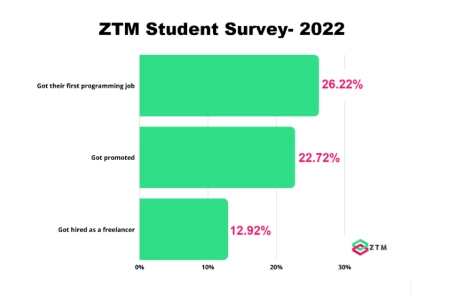What are the advantages of learning computer programming for students?
-

Introduction
In this technology driven world, students are reshaping their educational journey by mastering the pivotal skill of “computer programming”. Let’s embrace this diversified and transformative discipline as we delve into the new era of coding and computational learning. Let’s succinctly describe how beneficial it is to learn computer programming in this digital landscape.
Fostering critical thinking and problem solving technique
The twenty-first century encourages us to learn programming in order to improve our critical thinking and problem-solving skills. The concept of the global village is not just a term; it represents an era of digital evolution that embodies the integration of computer-based learning everywhere.
Memorization and traditional textbook reading are no longer effective methods for teaching conceptual topics. In today's digital age, we must learn programming and incorporate it into our classrooms to align conceptual learning with digitalization.
It's difficult to measure a student's IQ level without integrating modern learning methods into classrooms. You can't assess a student solely based on their memorization skills. By learning computer programming and developing critical thinking skills, students can conduct in-depth research, engage in effective reasoning, perform creative tasks, and independently solve problems using the latest computer-based tools, including AI in education and programming.
Learn programming to assess digitally
Computer-based learning can help teachers in evaluating students in multiple ways;
Individual assessment:
Educators can assess students' IQ levels using computerized assessment tools. Educators can utilize portable custom interactions (PCIs) with embedded online assessments to digitally evaluate multiple students efficiently and with minimal resources.Collaborative assessment:
Individual students may struggle to generate new ideas, but collaborative learning allows them to gather fresh perspectives and ideas, enhancing their critical understanding. Students are utilizing cloud-based learning platforms like Edmodo, Google Docs, Google Classroom, and Schoology for collaborative tasks. Integrating these collaborative assessment tools in classrooms with universal access can aid educators in evaluating students.Enhancing student learning through technology
We get to know about the impact of Edtech, now we will delve into the answer of how education technology is enhancing student learning.Personalized learning
Computers have transformed every aspect of learning, communication, and even thought processes. The introduction of personal computers in classrooms has revolutionized traditional education methods, making it more personalized. According to reliable sources, the Microsoft chairman has invested about $240 million in 'personalized learning' efforts through the Bill and Melinda Gates Foundation. This is how personalized learning is progressing as an effective educational approach.
- Computerized learning allows each student to progress at their desired pace with an instructional approach that can be optimized for their individual level.
- Educators can evaluate a student's progress using charts generated through Edtech tools or AI solutions.
- Incorporating
- Number sense games, sequencing games, and coloring games are nurturing creativity and computational thinking in K-12 students as they independently solve problems using computerized programs.
- Robotics provides an organized way for students to engage their minds, create patterns, and apply their skills while having fun with characters. Many robotic academies, such as Kids Robotic Academy and others, teach students to think critically and creatively to solve queries, fostering computational thinking.
- Assigning student tasks with restricted word counts can encourage computational thinking as they must explain concepts within defined word limits using.
- Breaking down complex problems into manageable and analytical steps using programming can help foster computational thinking in students.
- By learning programming, students can develop the ability to manage problems analytically, create efficient solutions, generate creative ideas, and refine their day-to-day assignments and tasks.
This is how personalized learning aligns with learning computer programming. Schools, colleges, and universities are advancing by educating their students about the benefits, usage, and motivation to learn computer programming.
Programming can develop computational thinking in students in several ways;
Digital literacy and interdisciplinary learning
Computer based education fosters digital literacy and helps students with interdisciplinary learning. By integrating computer programming skills in theoretical subjects can polish conceptual skills in them. Computational learning in classrooms equip students with technology that help them navigate in the digital world by making them literate in digitalization.
Digital literacy skills will better prepare students for future workforce demands and the job requirements that companies will need. Computers should not be limited to computer labs. Science utilizes computers to explain how seeds develop into whole plants with pictorial depictions, while physics uses computers and programming to illustrate how currents flow in circuits with animations. In short, computer-based learning has introduced an interdisciplinary education style in classrooms.
Access to learning resources
We've got plenty of free resources out there, like online videos, tutorials, and websites, where you can learn programming. You'll find many websites that offer programming education for students, lawyers, and educators, and the best part is, a lot of them are either free or very affordable.
For instance, CS50 is a variant of a computer science course at Harvard University designed for lawyers and students. It covers a range of concepts, from low to high-level, design decisions, and their implementation, while also addressing the legal implications of technological decisions.
Geektastic is a multiple-choice coding program designed to boost your IQ and encourage critical thinking. It stands out as a website that engages students with detailed answer sheets for each multiple-choice question.
There are many other accessible websites and programs aimed at augmenting programming skills in students without a high cost.
Learning programming languages
Students can always begin their programming journey by identifying which is the best programming language to learn and selecting the easiest language to learn that aligns with their interests. Following are some easy but high-level programming languages;
Python is general-purpose programming language, very easy to understand and learn. Whether you're a programmer or a non-programmer, its simple syntax, which resembles natural language, makes it easy to understand and use.
C is one of the longest-standing general-purpose languages. It is a great source for building your foundational knowledge of programming and for creating applications and operating systems. Ruby, Java, and JavaScript are also some of the easiest languages to learn and are excellent for building foundational programming skills.
Resources and Fun
Students are now more accompanied by the latest edtech tools. Because they are more fun, informative, and resourceful than traditional teaching practices. To make learning more engaging, schools are integrating these tools to generate engagement in the classroom. E-books, PDFs, technology-based subject studies, interactive visual assignments, project-based exercises, and gamification techniques are adding excitement to educational values.
Career opportunities
As articulated by the eminent physicist Stephen Hawking, the acquisition of computer programming skills is indispensable, regardless of whether one's aspirations entail the elucidation of the universe's mysteries or the pursuit of a career in the dynamic landscape of the 21st century. It is, unequivocally, a fundamental skill.
After you've mastered computer programming, a whole world of career opportunities opens up. Programming gives you the skills to design and create computer code, making software programs work smoothly and efficiently. After becoming proficient in computer programming, here are some occupations you can pursue; Cloud Engineer, Software engineer, programmer, Data scientist, Deep learning engineer, Database administrator, Java developer, iOS developer, ML engineer, Programmer analyst, Robotics engineer, and Software architect or developer.
Success stories of programmers
Are you at a crossroads in your career, seeking a path that offers both rewards and flexibility? Consider stepping into the world of programming. With programming skills, you can work from virtually anywhere, be it an office or a remote location. We've all heard inspiring stories of individuals who started from scratch and, within weeks or even days, found themselves earning millions. Let me share one of these success stories.
Have you ever heard of ZTM? It's an amazing online learning platform equipping students with in-demand skills. What's more, they have a collection of remarkable success stories to tell. In just the year 2022, their students collectively earned an astounding $40,506,000.

But that's not all. A remarkable 471 individuals made the bold decision to leave their conventional jobs behind and embark on full-time careers in software development, all thanks to ZTM. In conversations with these students, a common thread emerged - they started their journeys with minimal prior knowledge and learned the basics of programming through ZTM. The results were nothing short of extraordinary. Programming not only boosted their income but also paved the way for promotions, leading to earnings of millions within just one year or less. Additionally, it gave them the freedom to explore freelance opportunities.
Conclusion
Learn computer programming to unlock the digital realm of education in this era of revolution. It pervades every facet of life, from home to school, empowering individuals to approach tasks with creativity and innovation. Programming not only nurtures critical thinking and creativity in students but also creates job opportunities, equipping them with the requisite skill set to seize these opportunities. It's no surprise that programming is poised to shape the future of remote learning and earnings for the next generation.

